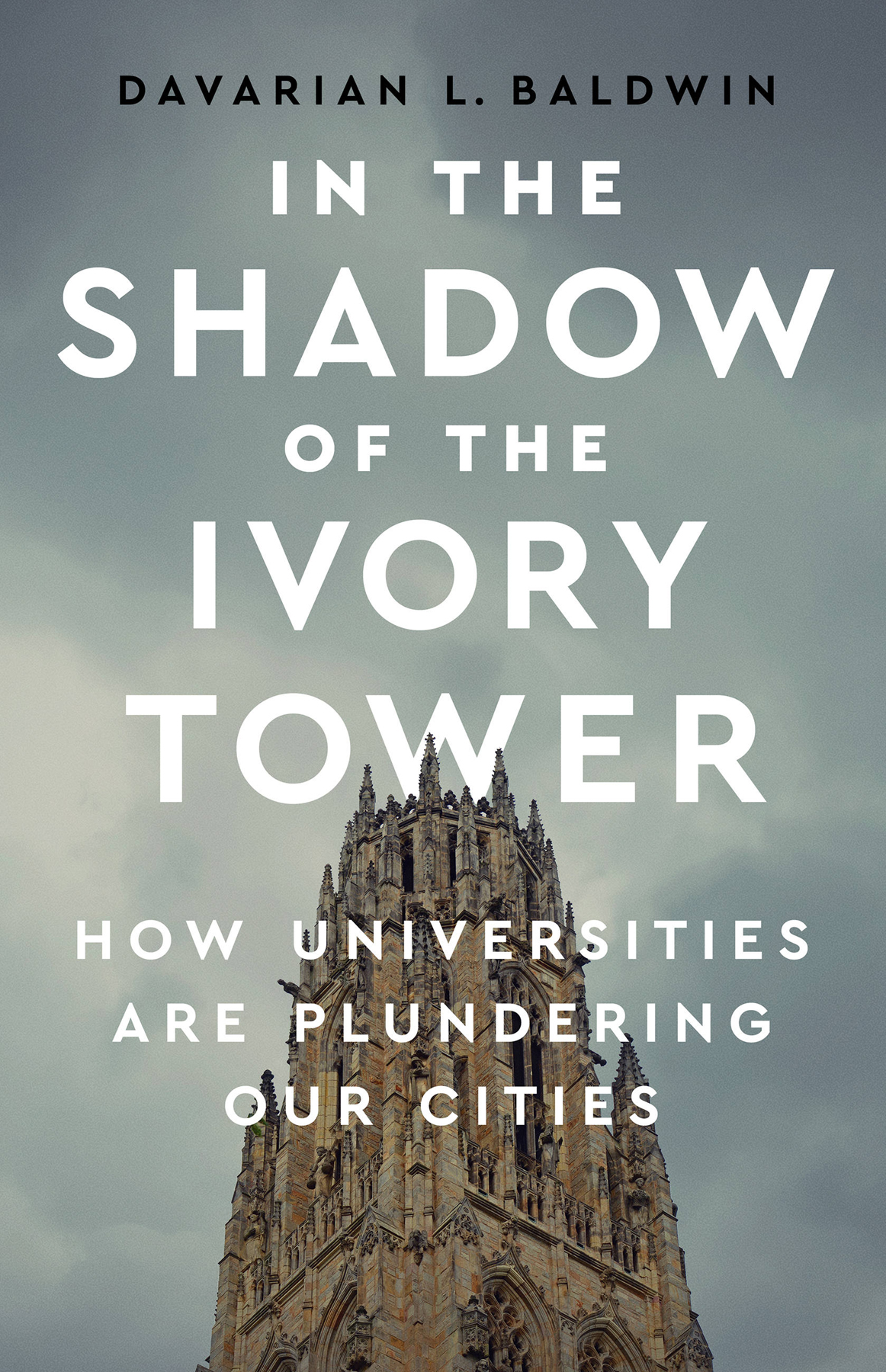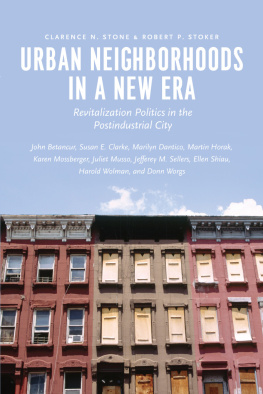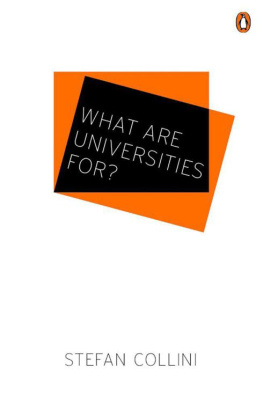
Copyright 2021 by Davarian L. Baldwin
Cover design by Pete Garceau
Cover image copyright Shutterstock
Cover copyright 2021 by Hachette Book Group, Inc.
Hachette Book Group supports the right to free expression and the value of copyright. The purpose of copyright is to encourage writers and artists to produce the creative works that enrich our culture.
The scanning, uploading, and distribution of this book without permission is a theft of the authors intellectual property. If you would like permission to use material from the book (other than for review purposes), please contact permissions@hbgusa.com. Thank you for your support of the authors rights.
Bold Type Books
116 East 16th Street, 8th Floor, New York, NY 10003
www.boldtypebooks.org
@BoldTypeBooks
First Edition: March 2021
Published by Bold Type Books, an imprint of Perseus Books, LLC, a subsidiary of Hachette Book Group, Inc. Bold Type Books is a co-publishing venture of the Type Media Center and Perseus Books.
The Hachette Speakers Bureau provides a wide range of authors for speaking events. To find out more, go to www.hachettespeakersbureau.com or call (866) 376-6591.
The publisher is not responsible for websites (or their content) that are not owned by the publisher.
Library of Congress Cataloging-in-Publication Data
Names: Baldwin, Davarian L., author.
Title: In the shadow of the ivory tower : how universities are plundering our cities / Davarian L. Baldwin.
Description: First edition. | New York, NY : Bold Type Books, [2021] | Includes bibliographical references and index.
Identifiers: LCCN 2020045203 | ISBN 9781568588926 (hardcover) | ISBN 9781568588919 (ebook)
Subjects: LCSH: Community and collegeUnited States. | Universities and collegesUnited StatesEconomic aspects. | Universities and collegesUnited StatesSocial aspects. | Education, HigherUnited StatesEconomic aspects. | Community development, UrbanUnited States.
Classification: LCC LC238 .B35 2021 | DDC 378.1/03dc23
LC record available at https://lccn.loc.gov/2020045203
ISBNs: 978-1-56858-892-6 (hardcover), 978-1-56858-891-9 (e-book)
E3-20210218-JV-NF-ORI
Discover Your Next Great Read
Get sneak peeks, book recommendations, and news about your favorite authors.
Tap here to learn more.

Explore book giveaways, sneak peeks, deals, and more.
Tap here to learn more.

For Nylan, Noah, Ellison, and Bridgette Always reminding me its the grace of life, not the pace of life
Davarian Baldwin is one of the most important urban historians and cultural critics we have today. In his new book, In the Shadow of the Ivory Tower: How Universities Are Plundering Our Cities, Baldwin brings his incisive insights and analysis to bear in a devastating critique of our dated and quaint notions of universities and colleges as egalitarian sites of learning and cultural production. Baldwin unmasks UniverCities as growth machines, unleashing gentrification, stewarding large police forces, cheating tax coffers while exploiting low wage Black and Brown labor throughout the campus. Deeply researched and forcefully written, Baldwin cracks open new debates about the complicated roles of these institutions of higher education and the cities they call home.
Keeanga-Yamahtta Taylor, author of Race for Profit: How Banks and the Real Estate Industry Undermined Black Homeownership
An unflinching and comprehensive look at how capital has reached its talons into every facet of our lives, from the halls of our elite universities to the street corners of our local communities. A good read for anyone interested in the depressing reality of universities today, a must-read for anyone interested in envisioning a more equitable future for education and city life.
P. E. Moskowitz, author of How to Kill a City
Insightful, compelling, and timely. In the Shadow of the Ivory Tower unveils a widely neglected aspect of American history: the role of higher education in shaping American cities. This book lays the groundwork for the role of universities in creating equitable and just cities.
Ibram X. Kendi, National Book Awardwinning author of Stamped from the Beginning and How to Be an Antiracist
Classes with professors and students are now a minor side business on college and university campuses with the economic and political power to reshape cities. One of the nations foremost urban historians, Davarian Baldwin reveals how these institutions have acquired massive financial and real estate holdings and leveraged them to displace vulnerable communities, control public access to essential services, define progress, and, even, command their own police forces. This brilliant study shows that higher education continues to thrive off the injustices that plague our society.
Craig Steven Wilder, author of Ebony & Ivy: Race, Slavery, and the Troubled History of Americas Universities
I never thought a university would foretell the future of our cities. But there I was, on a December afternoon in 2003, stepping out into the brisk South Side air after hours holed away in the University of Chicagos Regenstein Library. I immediately heard chants of protest and saw people buzzing about. So I followed the sound over to the main quadrangle, just outside the universitys administration building. There I saw a crowd of about fifty people surrounded by media crews and onlookers. On one side stood residents from the historic Black neighborhood of Bronzeville, alongside students and others chanting U of C, look at your history! while holding signs that read Support the Checkerboard Lounge in Bronzeville. And on the other side, university officials listened, mostly playing defense, with a silent chorus of furrowed brows.
The famed Checkerboard Lounge had been a cultural mainstay of Bronzeville, a blues shrine that had stood on 43rd Street since 1972. The lounge needed restoring, but instead of providing funding the university put together a plan to relocate the lounge from its original spot to a university-owned building inside the Hyde Park neighborhoods Harper Court shopping district. Outraged, Restoring Bronzeville advocates immediately charged UChicago with cultural piracy. For decades the city had turned its back on Bronzeville, but things were slowly changing, largely because of the sweat equity of local advocates working to turn things around.
Renovated hundred-year-old graystones, newly built condominium developments, and small shops slowly began to fill in the spaces between vacant lots and run-down storefronts. And many saw the Checkerboard as central to the economic revitalization of Bronzeville as a heritage tourist destination. But just when momentum started building around a modest neighborhood comeback, the university swept in and bought up one of the areas best cultural assets. And UChicagos backdoor deal resuscitated almost a century of local stories in which the school had either demolished Black neighborhood blocks or built institutional walls to keep Black residents away from campus. Here we go again, activists thought.








